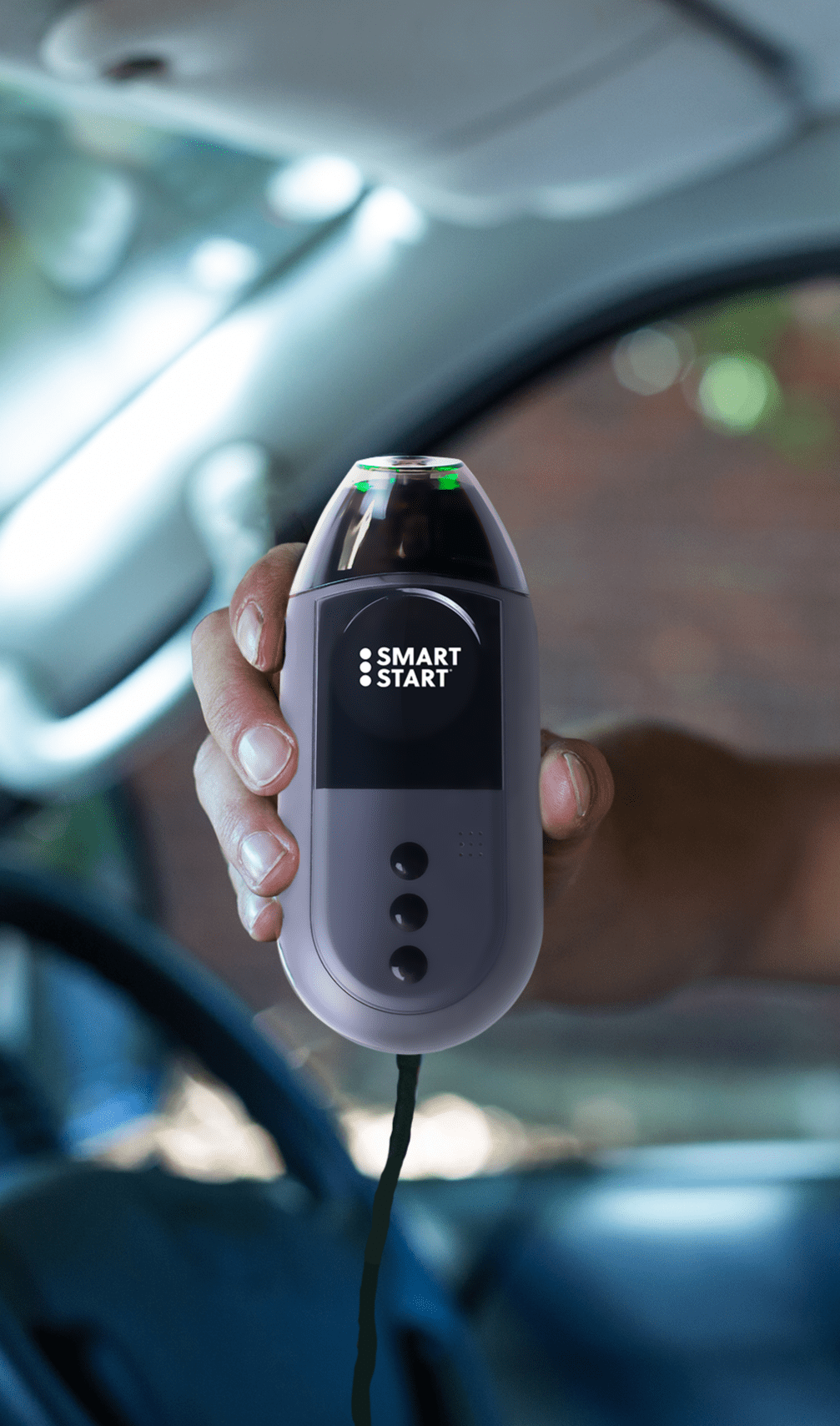Your First DWI Offense In Texas: Navigating the Unknown
Updated December 18, 2024
If you’re experiencing your first DWI charge in Texas, you’re likely worried about your future. What kind of repercussions might you face, and what happens next?
Understanding the potential consequences of a Texas DWI on the first offense is crucial for navigating the path ahead. This guide will cover some of the general information that anyone facing a DWI in Texas for the first time should know, including when you might be required to install an Ignition Interlock Device on your vehicle.
What’s the Definition of a DWI In Texas?
The Texas Department of Transportation (TXDOT) specifies that a person is considered legally intoxicated when their blood alcohol concentration (BAC) reaches .08%. That means that a driver who gives a breath or blood sample that indicates a BAC of .08% or higher can be arrested for driving while intoxicated (DWI), which is considered a Class B misdemeanor on your first offense. These laws also apply to boats and other watercraft. However, TXDOT also notes that a driver can be considered too impaired by alcohol or drugs to safely operate a vehicle, regardless of their actual BAC.
At this point, you might be wondering: What’s the difference between a DUI and DWI in Texas? You’ll often hear these terms used interchangeably, but they refer to different violations in Texas. In the simplest terms, only drivers who are too young to legally drink alcohol can be charged with DUI. For more on a DUI vs. DWI in Texas, read our guide.
What Are the Consequences for a Texas DWI On First Offense?
Even if it’s your first incident and there were no accidents or injuries, there are serious consequences for a DWI in Texas. Per the Texas Impaired Driving Task Force, some of the consequences that you might have to face for a DWI conviction in Texas include:
- Jail time – A first-time DWI conviction in Texas comes with a minimum of three days and a maximum of 180 days jail time.
- Fines – A first-offense DWI fine in Texas can cost you up to $2,000 (not including other expenses like court costs and Interlock Device installation). On top of this, the Texas Department of Transportation notes that you’ll pay a flat state fine of $2,000.
- Insurance hikes – Your car insurance rates will often increase after a DWI, even if it’s your first. You might also be required to obtain an SR-22 insurance certificate, which certifies a certain level of liability coverage for the vehicle you drive.
- License suspension — Your driver’s license could be suspended for up to two years after a DWI conviction.
- IID installation — You might be required to install an Ignition Interlock Device to maintain your driving privileges. (See below for more on this.)
- Other Consequences — You might have to perform community service or attend drug and alcohol education classes at your own expense.
Aggravating Factors for DWIs in Texas
Certain conditions can make the consequences of your first DWI offense in Texas more severe. Be aware of the following aggravating factors, which you can read more about in the Texas Penal Code or on the Texas Impaired Driving Task Force website:
- If your breath or blood sample shows a BAC above 0.15%, your DWI might be classified as a Class A rather than Class B misdemeanor. Typically, this translates to higher fines, longer suspension periods, and more potential jail time.
- If there was a person under age 15 in the vehicle when you were arrested, it is a state jail felony and possible penalties are automatically increased. You could face fines as much as $10,000, up to two years in jail, and up to 180 days of license suspension. You might also be criminally charged for child endangerment.
- If your arrest involved a collision or injury, your penalties might be substantially increased, depending on what you’re charged with.
- If you refused a breath or chemical test during your arrest, your license can automatically be suspended for up to 180 days, whether or not you’re later convicted of DWI.
Administrative License Revocation (ALR) in Texas
The administrative license suspension system is a separate civil process that automatically suspends your driver’s license when you’re arrested for DWI in Texas. Here’s how ALR works for a Texas DWI on your first offense, according to the Texas Department of Public Safety:
- If you refuse to give a breath or blood sample to law enforcement, or if your breath or blood sample has a BAC between .08% and .149%, your license will be suspended for a period of up to 180 days (depending on the circumstances and your previous record). If your breath or blood sample has a BAC of .15% or higher, a first offense DWI can result in suspension of your license anywhere from 180 days to 2 years.
- Talk to your attorney to determine your options for contesting a license suspension.
- If you don’t contest it, the suspension will usually go into effect 40 days from the date you were served notice.
When you’re ready to get your license back after a DWI in Texas, note that you’ll need to pay a $125 reinstatement fee as part of the process.
Getting an Interlock Device After a First DWI Offense In Texas
To continue to drive while your license is suspended, you might have to install an Ignition Interlock Device (IID) on your vehicle. An Ignition Interlock Device connects to your vehicle’s ignition system and requires you to provide a breath sample before starting the vehicle. If alcohol is present in your sample above a certain concentration, the IID will prevent the vehicle from starting.
The Texas Department of Public Safety states that once you have a court order mandating the use of an IID, you’ll have 30 days from the day the notice is served before your driving privileges are canceled. During that time, you’ll need to have an IID installed on any vehicle you drive. When you’ve had the interlock installed, you can submit your application for a restricted interlock license and pay a reinstatement fee. Remember that you’ll also pay a fee to lease the Ignition Interlock Device and have it installed.
The court has discretion over how long you’ll have to keep your IID installed in your vehicles. In some cases, you may be able to apply to the court for permission to have your IID removed early, so talk to your attorney to learn about your options.
Handle Your Texas IID Requirements With Smart Start
Thousands of people facing their first DWI in Texas have partnered with Smart Start to install their Ignition Interlock Devices. We’re a Texas-based company who understands what Texans need to get back on the road: same-day IID installation, 24/7 support, affordable prices, and multilingual customer service that’s always ready to help.
If you’re dealing with your first DWI offense in Texas, you’re not alone. Reach out today to our friendly team of Program Advisors in Texas — we’re ready to help you find a convenient and affordable IID solution for your vehicle.
Schedule an Installation
Get a quick and easy IID installation with Smart Start! Get started today!
¡Obtenga una instalación rápida y fácil de IID con Smart Start! ¡Empieza hoy mismo!
"* (required)" indicates required fields
Disclaimer
Meet the expert
Power Digital








